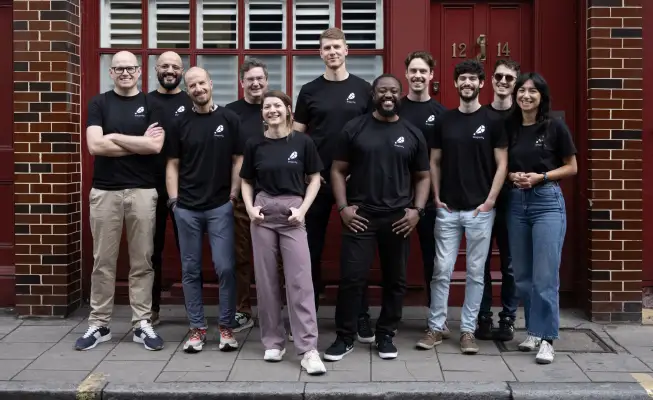London-based Dragonfly, which uses AI to recommend and optimize software tools for businesses, has raised £2.6 million in a pre-seed round and launched its conversational AI platform.
- Established in 2024 by Sean King and Sven Sabas, Dragonfly develops an AI-powered software discovery platform designed to help businesses evaluate, select, and optimize their technology stacks.
- The platform aggregates data on over 250,000 software products from multiple sources and uses proprietary algorithms to analyze a company’s existing technology environment, referred to as a “digital fingerprint.”
- By processing both simple and complex queries, the system generates tailored software recommendations that consider performance, integration, security, and compliance.
- Dragonfly’s AI tool allows companies to map their software landscape, compare alternatives, and receive structured guidance on selecting tools that align with their operational needs and growth objectives, reducing the time and uncertainty involved in technology decision-making.
"We're building Dragonfly to be the technology companion we always wished we had - one that empowers every company to make faster, better choices about the software they use to build and scale,'' claims Sven Sabas, co-founder at Dragonfly.
Details of the deal
- The £2.6 million pre-seed round for Dragonfly was led by Episode 1 Ventures, with participation from Dreamcraft Ventures and Portfolio Ventures, alongside angel investors including Sam Bourton, CTO of QuantumBlack, and Markus Villig, CEO of Bolt.
"Before Dragonfly, it was almost impossible to gather enough context about software tools to truly understand their capabilities, and whether they fit seamlessly within an existing stack. By solving this critical problem, made even more urgent with the rapid adoption of AI, Dragonfly has the potential to make every company on the planet operate more effectively," explains Hector Mason, General Partner at Episode 1.
- Dragonfly will use the funding to advance its AI software discovery platform, grow its data assets, hire key technical talent, and expand user adoption while rolling out enterprise-grade features for managing technology stacks.





